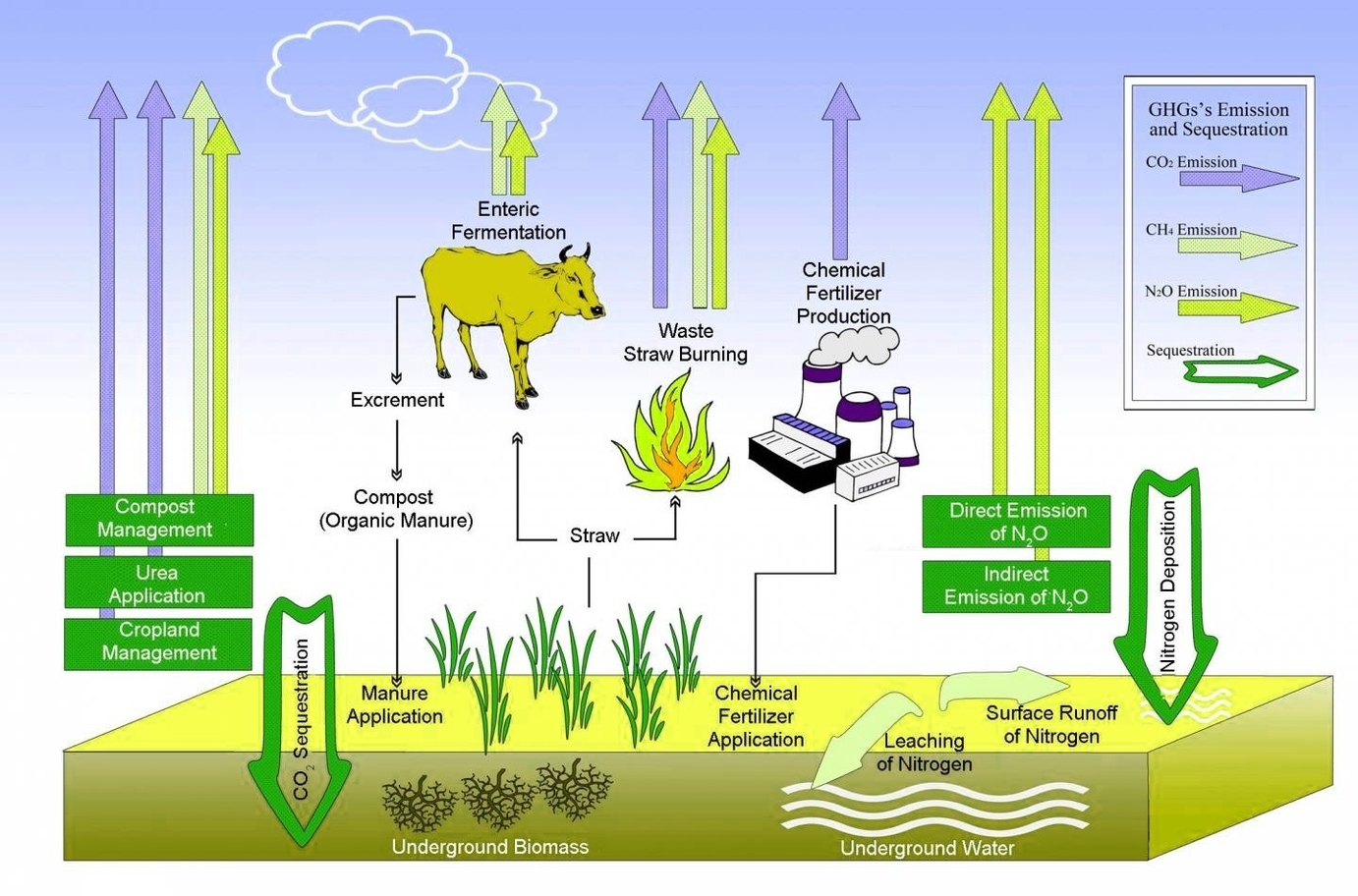
Organic farming is a method of agriculture that avoids the use of synthetic fertilizers, pesticides, and genetically modified organisms (GMOs) in favor of natural and sustainable farming practices. Carbon sequestration is the process of capturing carbon dioxide from the atmosphere and storing it in the soil, trees, and other organic matter. Organic farming can play a significant role in carbon sequestration by promoting healthy soil and plant growth, which can help to reduce greenhouse gas emissions and mitigate climate change.
According to the Rodale Institute, organic farming can help to sequester carbon in the soil by promoting the growth of healthy plants and microorganisms that can capture and store carbon dioxide from the atmosphere . During photosynthesis, plants use solar energy to extract carbohydrate molecules, or sugar, from carbon dioxide. Those carbon-based sugars are extruded from the plants roots, feeding bacteria and fungi in the nearby soil. In turn, these microorganisms symbiotically transform soil minerals into nutrients that feed plants and help plants fight disease and pest pressure. During this exchange, the sugars that get consumed by soil bacteria and fungi are converted into more stable materials that trap carbon in the soil for decades, even centuries . The Soil Association estimates that widespread organic farming could potentially sequester 1.5 billion tC per year, which would offset about 11% of all anthropogenic global GHG emissions for at least the next 20 years .
Organic farming practices such as crop rotation, cover cropping, and reduced tillage can help to promote healthy soil and plant growth, which can in turn help to sequester carbon in the soil . By avoiding the use of synthetic fertilizers and pesticides, organic farming can also help to reduce greenhouse gas emissions and mitigate climate change . A 2012 study in the Proceedings of the National Academy of Sciences found increased carbon sequestration in organic farm soils . However, a 2013 letter in the PNAS disputed those findings, arguing that there were no carbon sequestration benefits related to organic farming .
In conclusion, organic farming can play an important role in carbon sequestration by promoting healthy soil and plant growth, which can help to reduce greenhouse gas emissions and mitigate climate change. While there is some debate over the effectiveness of organic farming
